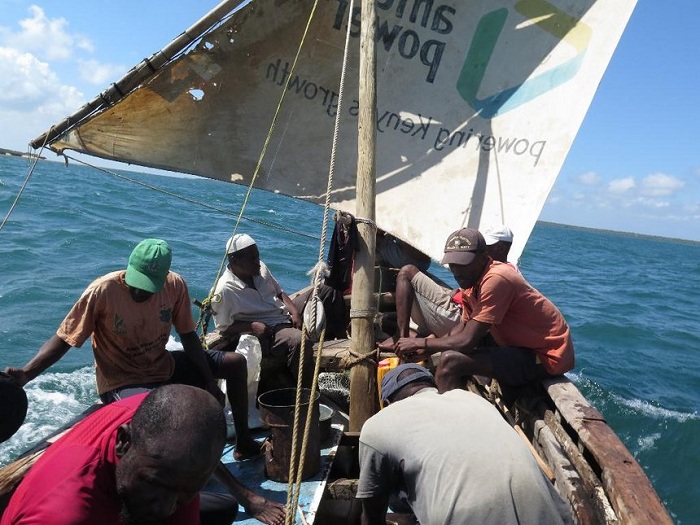Lamu, KENYA: Lamu fishermen who have been displaced by the ongoing dredging activities at the new Lamu Port-LAPSSET will not receive monetary compensation as they had expected.
The LAPSSET Corridor Development Authority Director-General Silvester Kasuku said the fishermen would instead receive comparable compensation in that they shall receive the necessary skills and equipment that will enable them to conduct fishing on the deep seas.
Kasuku said the authority will also ensure inclusivity of the fishermen in all stages of the new compensation package.
The over 7000 fishermen had sought to be compensated for the entire remaining period of their lives which they will be locked out of the safer fishing waters of the Indian Ocean due to dredging.
Speaking in Lamu on Wednesday,Kasuku however said monetary compensation in such a situation was unrealistic and untenable and that as such wouldn’t happen.
The fishermen said due to the dredging,the traditional fishing waters have been closed closed off to a significant number of artisanal fisher persons who currently depend on the channel for their livelihood.
Artisanal fisher men have now been forced to abandon their trade on the safer channels with the only remaining option being for them to struggle and cope with the risky demands in the high seas but the fishermen say its impossible for them to survive the high seas with the simple fishing machinery they have.
The fishermen have tried to seek compensation for the impending loss of their traditional fishing avenues without much success for years now.
Kasuku said the authority was focusing more on equipping the fisherfolk with modern skills and equipment which will enable them conduct their trade on the high seas.
He said every single affected fisherperson will receive the skills and all the necessary equipment including powerful boat engines absolutely free from the authority.
Kasuku urged the fishermen to form or join Beach Management Units-BMUs to enable them get the services sooner.
“We are in talks with the national government,the county government and the LAPSSET so that we can agree on degree of compensation which we have already said wont in monetary but comparable form.We shall give them skills and equipment so that they continue with the trade,”said Kasuku.
There have been revelations of a lack of awareness of the existing frameworks on sustainable development by key stakeholders as well as the host community and a failure by the government to domesticate,harmonize,enact and implement frameworks that will see the fisherfolk suffer less due to the LAPSSET.
According the Lamu County Director for Fisheries Simon Komu,the building and operations of the port will necessitate the cessation of traditional fishing practices in some of the channels heavily relied on by fishermen in the region.
Speaking in Lamu on Wednesday,Komu says the traditional fishing waters will have to be closed off to a significant number of artisanal fisher persons who currently depend on the channel for their livelihood.
He says artisanal fisher men will now be forced to abandon their trade on the safer channels and will now have to struggle and cope with the risky demands in the high seas.
He argues that it will be impossible for the fisher fork to survive the high seas with the simple fishing machinery.
Komu says the government ought to ensure the protection of national fishing zones by gazzetting in order to protect fisheries resources from decimation by indiscriminate industrial and shipping activities in order to allow the local fishermen to access habitual marine easements for purposes of fishing.
“It will only be possible to protect the fishing industry in Lamu if all the fishing zones are gazette. That way, whatever happens, we can at least be sure that fishermen will still be able to conduct their work with less intrusion,”said Komu.
In addition, the government should also facilitate the reclamation of community boat landing sites many of whom he said had been privatized.
The stakeholders are of the opinion that, rather than displace the fisheries sector, oil revenues should be employed towards exploiting the currently under-utilized fishing zones of up to 200NM in Kenya’s territorial waters.












